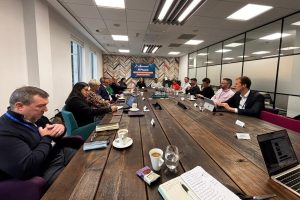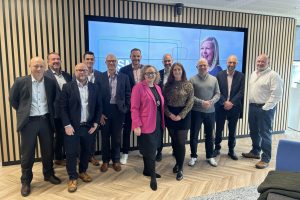Business leaders discuss the changing face of the workplace
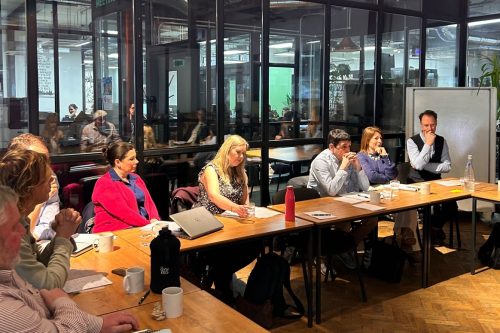
The world of work and the places where we do our jobs have undergone major upheavals in recent years.
The landscape was already shifting dramatically but the speed of change went into overdrive as a result of Covid and the subsequent lockdowns across the world.
Business leaders and employers have had to fundamentally rethink how they recruit and retain staff, manage their teams, and make best use of office space and time.
With the support of Curium Solutions TheBusinessDesk.com brought together business leaders and advisers from across the region for a round table which looked at the impact of change and how organisations are altering the way they operate and interact with their staff.
The round table was held at Future Leap’s co-working space in Bristol.
Zoe Colosimo is the chief operations officer of Bristol-based giving platform, Neighbourly.
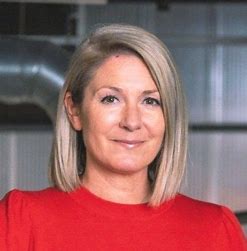
She talked about how the Covid epidemic was a major catalyst for changes which are here to stay.
Zoe said: “We went home to work for a couple of days and we never went back into the office.
“We didn’t miss a beat, as a business we actually grew through the pandemic and scaled up.”
Zoe said the pandemic became an opportunity as well as a challenge and has helped Neighbourly develop as an organisation.
She added: “It actually taught us what we were capable of and what could be achieved using the technology that was already available to us.”
Chris Bowie-Hill is a director of innovation delivery at consultancy firm Hydrock.
He believes that the move away from traditional methods of working has placed more emphasis on individual responsibility.

He added: “We found that people in the business wanted different things and we needed to rearrange how the business functioned.
“We were trying to create an office where different people could spend time with one another and pick up ideas from each other.
“We needed to get past the idea that people needed to be monitored and micromanaged. Covid proved to us all that there can be a shift in the way a business operates and that can include a mixture of approaches.”
With more people spending more time on their own it also became increasingly important to manage the situation.
Chris added: “What we need to get right is the management skills, many of the people who are managers in organisations are used to working with people face to face and have had to learn a new set of skills.
“We have had to think hard about how we support and help those at the beginning of their careers.”

Nina Searle from law firm TLT also believes trust has become a major factor in the workplace.
She added: “Suddenly we are in a situation where people are being expected to deliver without someone monitoring them all the time. A lot of this has been about trust and empowering people to do their jobs.
“The younger generation recognise they need to come back into the office to get the support of people with more experience.”
Ellie Kershaw is the managing director of brand and design agency Mr B and Friends.
Ellie argued that changing the day to day operating structures meant that the agency needed to think harder about its long term strategies and approaches.
She said: “We now have much more structure in the way we do things such as onboarding and that has helped a great deal in terms of accelerating growth and getting the right people into the right teams.
“In the past people used to watch and learn in the office and you cannot do that in the same way anymore.
“We now have much more structure when it comes to training and personal development which has certainly helped improve the way the business operates.”
Gavin Eddy is a director at Forward which specialises in creating and operating shared workspaces. He believes there have been a number of different factors which have driven changes forward.

Gavin said: “Originally, the clients we tended to deal with were freelancers and microbusinesses who were at the beginning of their careers.
“What we are seeing now is much more of the larger corporate clients who are setting up local HQs. They will have a cluster of ten to 20 people in a particular area or region.
“Rather than have those people commute up to a head office or centre they will create a space for them closer to where they live.”
Gavin added: “We started in 2007 and you could see how things were going to change with the advent of broadband. With the advent of full fibre broadband it no longer mattered where you were based and proximity to market place was no longer a major factor.
“You could see that coworking was going to become a major thing. We opened our first space in a market town in Somerset because we knew that if it was going to work there it was going to work pretty much anywhere.”
Gavin said: “Carbon footprint has been a major factor. The commute to work is such an inefficient way of working in so many ways.
“Companies and individuals want to know that they are making an impact when it comes to sustainability.”
Ben Lowndes is a founder and director of communications agency Distinctive Comms.
He said: “Clients are much happier now about holding meetings virtually. The idea that you would travel halfway across the country for a meeting when you can meet online is ridiculous.
“The concept of the office and the workspace has been blown apart and we have not arrived at our final destination as yet, there is still a long way to go.”

Ben added: “The way we used to operate was not working for a lot of businesses anyway and although the change was enforced by the pandemic it was needed.
“Our policy as a business is to work when and where you want. The key for us is outcomes rather than how they are delivered.”
Alan Bailey, the founder of Future Leap, said: “The key to employing and managing larger teams is flexibility within a framework.
“People really respect and like that flexibility and it also means that we get a lot of loyalty from our teams.
“We find ways to make things work for our staff and it is really important for us to be a responsible employer.”
He added: “There is also a big responsibility as an employer in terms of mental health.

“There has been an epidemic of mental health issues for people under the age of thirty and that it is something that we need to be aware of.
“We have to have that flexibility as a business so that people don’t feel overwhelmed or overworked.”
Paul Bray from PKF Francis Clark added: “ We do want people to come back into the office but people have got used to working from home and all the benefits that come with that.
“We have noticed in recent months that people have started coming into the office more even though we still take the flexible approach. There will always be a need for people to collaborate in shared spaces.”
Andy Dawson, a director and co-founder of Curium Solutions, says there is growing evidence that hybrid working is the key to getting the best results.
He said: “There are a number of studies now which have 18 months to two years’ worth of data about productivity in different working situations.
“The studies are suggesting that the hybrid model which offers flexibility offers the best productivity while having a fully remote workforce results in the lowest levels of productivity.”
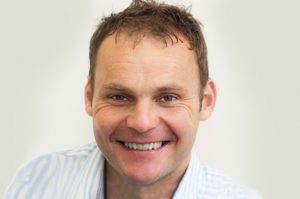 He added: “As a business we have also been involved in the four-day week movement. We have found that if we allow our teams some autonomy mixed with guidance and support it allows you to be more flexible as an employer.
He added: “As a business we have also been involved in the four-day week movement. We have found that if we allow our teams some autonomy mixed with guidance and support it allows you to be more flexible as an employer.
“The flexibility allows you to introduce new ways of working such as the four-day week approach.”


